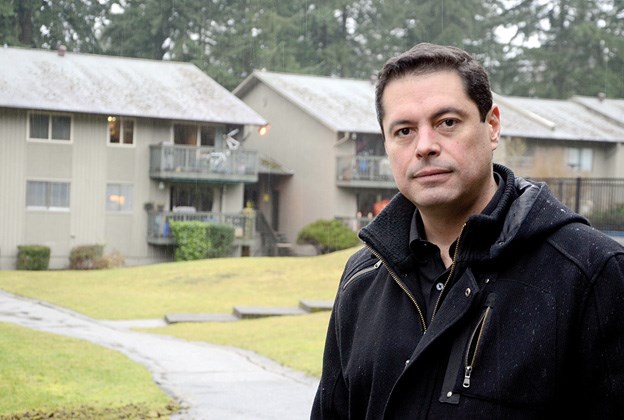A recent B.C. Supreme Court decision has paved the way for owners of an apartment and townhouse complex in North Vancouver to sell to a developer - despite the wishes of some owners to stay put.
B.C. Supreme Court Justice Lauri Ann Fenlon recently sided with the majority of owners of Seymour Estates on Lytton Street, who asked the court to approve the sale of the entire property.
That decision satisfied the vast majority of owners, who argued in court they'll get more money by selling as a group than they could individually and avoid potentially costly repair bills as the 40-year-old complex ages.
For a small group of owners, however, the decision could force them to move off the North Shore, where they have community ties, if they can't find similar affordable housing - or out of the housing market entirely.
For those people, "This is a huge deal," said lawyer John Whyte, who represented six of those opposed to the sale. "This is their home. It's a major investment."
The court case highlights dilemmas faced when one group of owners in an aging housing complex wants to sell, but others don't.
In the case of Seymour Estates, that is complicated further by an unusual ownership structure.
The 114-unit complex, which includes eight buildings and units ranging from bachelor suites to four-bedroom apartments, occupies about seven acres of land near the Canlan ice arena.
The complex was created as a "common law condominium corporation" - a type of ownership popular in the 1970s that has since been banned by the province.
Unlike a strata complex, where each owner individually owns their unit, in a common law condominium, each owner has a "fractional interest" in the whole complex.
"On the ground it's the same," said Peter Roberts, a lawyer who acted for the majority of owners in favour of the sale. "Legally, it's quite different."
One advantage to the units is they were generally cheaper than a similar condominium when the owners bought them. The downside is that if enough of their neighbours wanted it, they could be forced to sell.
At Seymour Estates, that prospect was first raised about two years ago when Darwin Construction approached the owners council, interested in redeveloping the site with a denser housing project.
Some of the owners were interested from the outset, others weren't, said Rene Cravioto, president of the owners council. Among those who wanted to sell, the prospect of facing hefty repair bills from plumbing and roofing repairs in the future was a factor in their decision. "Water leaks are a common thing in Seymour Estates," said Cravioto.
Owners were told Darwin would give them 30 per cent more than they could get selling their units individually. When more than 90 per cent of the owners had signed on to the deal, they hit an impasse.
"As owners we were at a deadlock," said Cravioto.
The problem for those opposed to the sale is they will likely not be able to buy back into the same neighbourhood for the cash they'll get from selling their units, said Whyte.
Most of his clients will instead be faced with having to substantially downgrade where they're living - or moving out of the community.
"We're looking at people who don't have a lot of money to throw around," said Whyte.
Most families are deeply rooted in Seymour, he added. "They didn't want to have their lives disrupted by being forced to move."
Whyte said not all owners were persuaded that the management's estimate of future repair bills between $15,000 and $30,000 per unit is realistic or that the estimated sale prices of units in Darwin's new development are accurate.
Yolanda Hamilton has lived at Seymour Estates with her adult son for the past eight years, and doubts she'd find a similar apartment for what Darwin is prepared to offer her.
"I'm living here now because it's convenient for my life," she said.
Some people forced into selling don't work and might not even be able to get mortgages to buy new homes, she said.
While the court approved the sale of the complex, the judge must approve a final offer. Whyte said he hopes that will ensure owners forced to sell will get a reasonable return.
Cravioto says the pro-sale owners don't want to see anybody harmed. "We're conscious of the needs of the minority that did not want to sell," he said.
Said Hamilton, "I don't think anybody wants to have a war with their neighbours."



